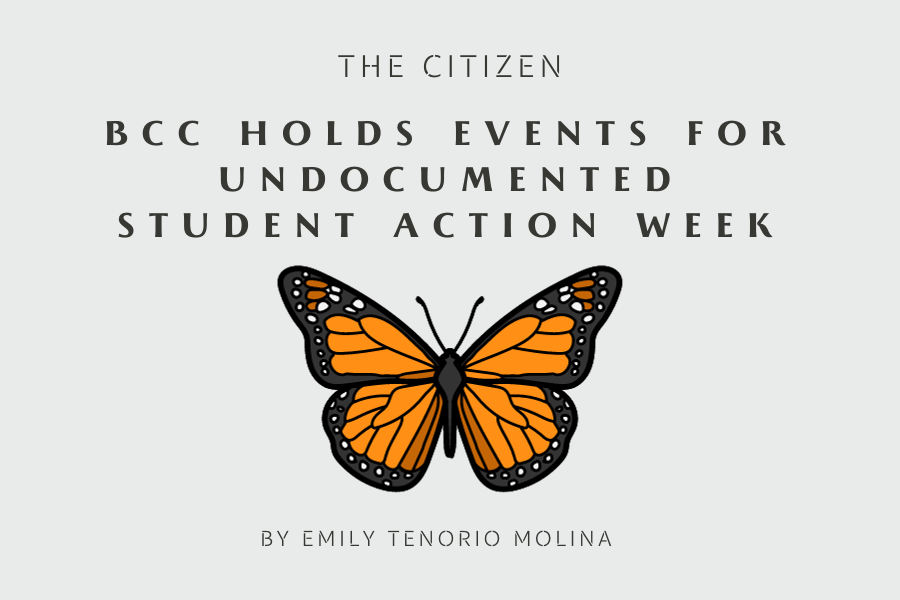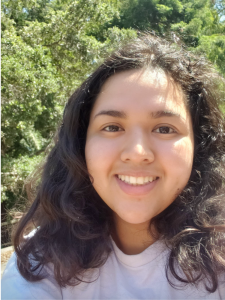The week of Oct. 16 marked the seventh annual Undocumented Student Action Week across community colleges in California. Berkeley City College (BCC) held a series of events centering the undocumented student experience and promoting active solidarity within the community.
Such events included live conversations with undocumented leaders on their success through resources, art commemorations, and insightful stories for undocumented students. The week culminated in a field trip to UC Berkeley’s undocumented student center.
Students and the public participated in the efforts to continue the education of undocumented students amidst the current uncertain fate of the DACA program.
A few of the events held by the BCC’s Undocumented Community Resource Center (UCRC) are highlighted here.
The UCRC has been a space for BCC students to meet their academic and career goals since its establishment in 2008 by Carolina Martinez, who helped facilitate many of the events during this year’s Undocumented Student Action Week.
At the opening event of the week, BCC President Denise Richardson lauded the UCRC’s active engagement with helping students access quality education on campus.
“Education is a human right and no human is illegal in our community of scholars,” Richardson said.
Immigrant Legal Defense Presentation: 10/18
An online presentation was held during the third day by the Immigrant Legal Defense (ILD), an organization that provides free counsel and legal education to students across California colleges. The ILD updated students with their DACA status while also working on their education.
Currently, undocumented students cannot file for DACA since the Federal District Court in Texas deemed it unlawful back in September. However, the Department of Justice and the Mexican American Legal Defense and Educational Fund filed legal notices on Nov. 9 stating their plan to appeal the recent ruling.
Manoj Govindaiah, a Managing Attorney for the ILD, stated during the presentation that in the US, only immigration attorneys and accredited representatives can give legal advice and be representative in immigration matters. Govindaiah warned students to be mindful of any scams or misinformation they may encounter.
Keynote Speaker Carlos Eduardo Espina: 10/19
BCC hosted Uruguay-born activist Carlos Eduardo Espina, a persistent advocate for the immigrant community and the founder of multiple immigrant-focused organizations, to deliver a keynote speech on the fourth day. Espina has a following of over 7 million in TikTok, where he posts educational videos covering immigrants’ rights.
Growing up in a Latinx community in College Station, Texas, Espina initially worked towards becoming a professional soccer player. However, when the topic of immigration came to national spotlight after former president Donald Trump’s delivered inflammatory remarks during his presidential announcement speech, Espina began to advocate with non-profit organizations as a translator and citizenship educator for young migrant kids.
“You realize in the world you live in, you have influence,” Espina stated.
Espina developed his first non-profit, Football for the Future, in his hometown in Texas back in 2017. The program provided free soccer camps to Latinx students from low-income families. Espina hoped to give students the same enjoyment he holds for the game without the financial barriers.
From 2019 through 2022, Espina worked to develop the Detained Refugee Solidarity Fund. He wrote letters, bought toys, and sent donations to detained migrants, and even visited them at detention centers for moral comfort.
He is currently studying law at the University of Nevada, and is working with Migrantes Unidos, a direct service for education and resources for undocumented individuals in Houston, Texas.
“Every achievement that you make, make sure to think ‘what can I do with this and help others,’” Espina said.
To learn more about the Undocumented Student Center and its resources, visit them online or on the 1st floor of BCC.



























